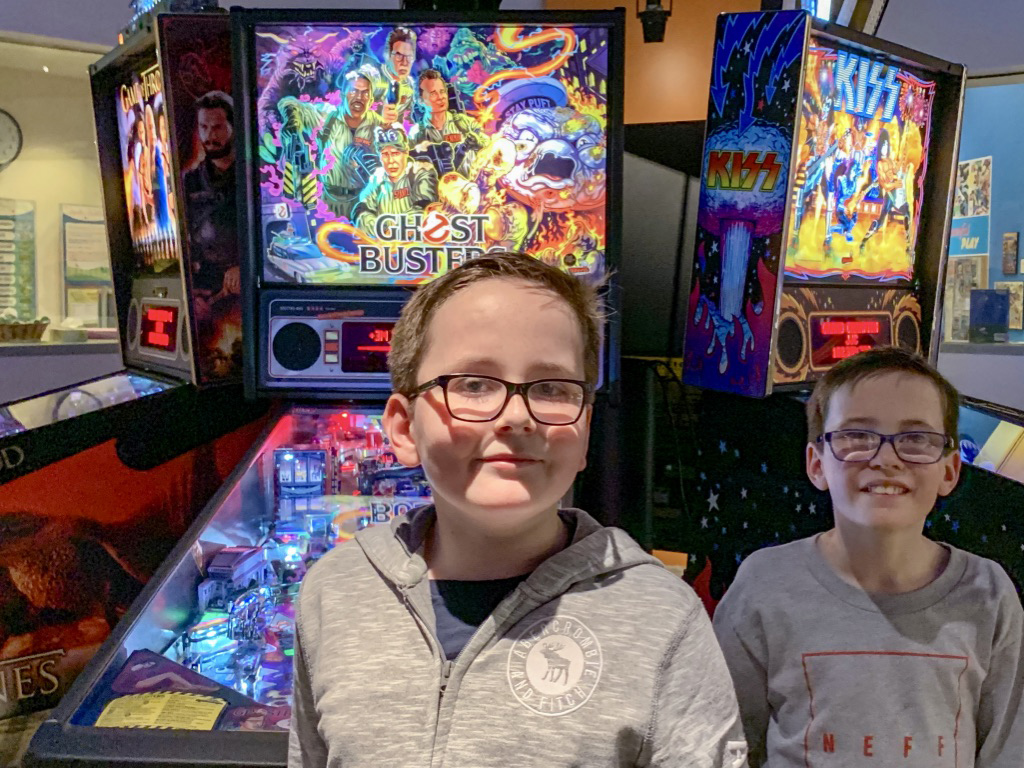ABCD Study Completes Enrollment, Already Making Impact on Community
 More than 300 Rochester-area children are participating in the Adolescent Brain Cognitive Development (ABCD) Study at the University of Rochester Medical Center (URMC). The federally funded project officially completed enrollment last month with 11,874 total children, ages nine and 10, participating nationwide.
More than 300 Rochester-area children are participating in the Adolescent Brain Cognitive Development (ABCD) Study at the University of Rochester Medical Center (URMC). The federally funded project officially completed enrollment last month with 11,874 total children, ages nine and 10, participating nationwide.
URMC, one of 21 sites where the ABCD Study is being conducted, exceeded its enrollment target of 275 children in just over one year with a total of 339 youths from the Rochester area participating. URMC achieved the ambitious recruitment goal with the assistance of numerous organizations and community members (see list below). The current participant pool includes children from the Rochester City School District, as well as surrounding suburban school districts including Webster, Greece, Brighton, Pittsford, and Newark.
“We were the final site to join the study and compressed for time to get local children on board, so we are very grateful for our community panel that supported our efforts from the beginning,” said John Foxe, Ph.D., co-principal investigator for the ABCD Study site at URMC and director of the Del Monte Institute for Neuroscience. “We’re pleased to say that we now have a group that represents a broad variety of backgrounds.”
Research participants and their parents report to the Cognitive Neurophysiology Lab and are interviewed by researchers, complete surveys, and the children perform games and puzzles designed to measure their cognitive function. Every two years, the children will undergo MRI scans, which allows researchers to safely and non-invasively collect a detailed image of the structure of their brains.
“It’s exciting for Rochester to be a part of the trailblazing ABCD Study,” said Dr. Ray Giamartino, chief accountability officer, Rochester City School District. “The successful and quick recruitment process speaks volumes of the families in our community and their dedication to research that will eventually help other families, educators, healthcare professionals, and policymakers know more about the developing brain.”
Funded by the National Institutes of Health, the $300 million ABCD Study will track the biological and behavioral development in children for a period of 10 years. It is the largest long-term investigation of brain development and child health ever undertaken in the U.S., and follows an “open science” model that makes data available annually to the research community.
The study ultimately aims to understand how childhood experiences such as social media, video games, smoking, sleep and other factors impact brain development, academic achievement, and social behavior. It is similar to the renowned Framingham Heart Study, which has studied cardiovascular disease (CVD) in three generations of participants for 70 years. Just as the Framingham study informed much of what we know about CVD risk factors, NIH hopes the findings from ABCD will provide families, educators, healthcare professionals, and decision-makers tangible information to improve care and better understand the events that impact childhood development from adolescence through young adulthood. Along with the long-term scientific benefits, the study has discovered health issues in a small number of participants that would otherwise go undetected.
“One of the fascinating aspects of the ABCD Study is that we get to see a large number of young children and it turns out there is quite a lot of variability in brain structure,” said Ed Freedman, Ph.D., co-principal investigator for the ABCD Study site at URMC. “While most of these differences have no clinical relevance, we have also seen some anomalies that require referral to pediatric neurologists at URMC. While it’s not feasible for every child to have a brain scan, this study may give us more insight into how to spot these problems early on, before they become significant health problems.”
Since the study requires a high level of commitment over 10 years from the participants and their families, the ABCD team at URMC has hosted a variety of get-togethers to thank them for their ongoing support. Most recently, more than 900 people attended an evening of play at The Strong Museum.
“It’s important to keep the children engaged and wanting to come back, especially as they grow older,” said Foxe. “We want them to know how much they are valued and appreciated for their dedication to the study and the greater cause.”
The following individuals are members of the ABCD Community Liaison Board:
- Dr. Nancy Bennett, professor, Departments of Medicine and Public Health Sciences, director, Center for Community Health and Prevention, co-director, Clinical & Translational Science Institute at URMC
- Sister Diana Dolce, executive director and founder, Hope Hall School
- John Ervin, parent of research participant
- Dr. Ray Giamartino, chief accountability officer, Rochester City School District
- Carmen Gumina, superintendent, Webster Central School District
- Dr. Dirk Hightower, executive director, Children’s Institute
- Norma Holland, anchor and reporter, 13WHAM
- Deborah Napolitano, assistant professor of education, Daemen College, clinician III/behavior analyst in Developmental Disabilities Services, Hillside Family of Agencies
- Dr. Shaun Nelms, associate professor and William & Sheila Konar Director of the Center for Urban Education Success at University of Rochester Warner School of Education, superintendent, East High
- Erick Stephens, parent engagement coordinator, Common Ground Health
- Larry Wahl, director of strategic planning and secondary ELA, Webster Central School District
- Todd Waite, vice president of youth development, YMCA of Greater Rochester

